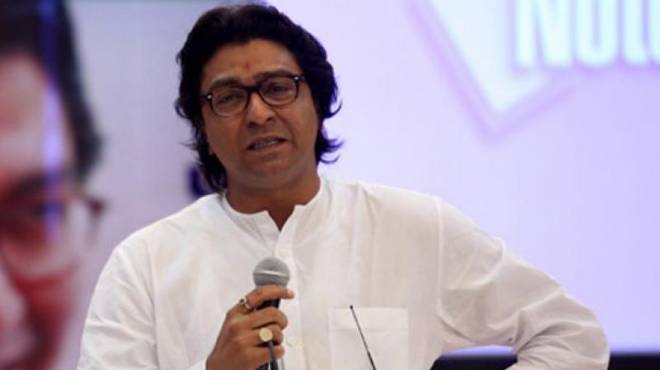Mumbai: Struggling for political space, the Raj Thackeray-led Maharashtra Navnirman Sena (MNS) has knocked at the doors of Shiv Sena for tactical adjustment in the upcoming civic polls in Maharashtra, but any truck between the two is unlikely to fructify with the latter showing little interest in it.
Terming it as a “political move,” MNS sources said “efforts are being made” to cosy up with Sena, which is gearing up to battle it out with the BJP after deciding against a pre-poll pact.
But, the Sena has shown no serious interest in the MNS proposal.
“We are fully ready for the polls. Unfortunately, we have to battle the BJP. Uddhavji has made it clear that he will not seek anybody’s support or alliance. If anybody wants to support us, we will consider it sympathetically. However, seat-sharing or any tactical understanding is ruled out,” Sena sources said.
MNS sources, however, indicated that the party has not given up all hopes.
Fuelling speculations of a covert understanding in the form of seat adjustment between the two parties, MNS’s former legislator Bala Nandgoankar had gone to Sena chief’s residence. Though he could not meet Uddhav, he handed over a letter containing the party’s proposal.
Sena sources said the party chief has virtually spurned the overtures from the MNS.
The Raj Thackeray-led MNS, an offshoot of Shiv Sena, which had bagged 111 seats in urban civic bodies in 2012, is now finding itself alone.
According to political observers, MNS is suffering from some sort of “trust deficit” and “credibility crisis,” a perception its leaders and functionaries refuse to share.
Five years ago, the MNS, riding on Raj’s charisma and “anti-north Indian immigrant” agenda, had bagged 28 seats in Mumbai corporation, seven in Thane, 29 in Pune, four in Pimpri-Chinchwad, two in Nagpur and one in Akola.
In Nashik, it cornered 40 seats and stormed to power, and got its candidate elected as mayor with the Nationalist Congress Party (NCP) support.
Raj had supported Sena in Mayor election in Mumbai and expected the gesture to be reciprocated in Nashik. But his estranged cousin Uddhav did not yield.
Party insiders say majority of the 111 corporators as well as former MLAs have switched sides either to Sena or BJP.
“Prior to the 2014 Lok Sabha elections, Raj supported the candidature of Narendra Modi for prime ministership. If he wanted Modi to be PM, why did he field candidates against the Sena-BJP then,” observers noted.
Its detractors also charge that MNS had dropped mid-way several agitations that it launched, including the one against toll levy and Pakistani artistes.
In the 2014 state polls, the MNS’s strength in the Legislative Assembly nosedived from 13 to one.
However, there has been no course correction and workers and leaders who had stayed back were left to their fate, party sources said.
Despite getting power in Nashik and a good number of corporators in other cities, the party has not been able to achieve much, observers say.
In municipal council and Nagar Panchayat polls held recently, the MNS could bag only seven seats as against 61 seats it secured five years ago.
Recently, Raj Thackeray had said he was willing to go for a pre-poll alliance for the civic polls next month, but there were no takers.
Refuting the negative perceptions, MNS vice president Vageesh Saraswat said his party will increase its tally in the urban civic bodies and Raj Thackeray is a charismatic leader who inspires Marathi youth.
“We will replicate our Nashik development model elsewhere if given a chance,” he said.
BJP leader Madhav Bhandari said Raj Thackeray’s style of functioning does not create confidence in the society’s mind and there is no chance of revival for the party.
He said Raj has not been able to fulfil the expectations he aroused when he made a splash on the state’s political scene, after breaking away from the Shiv Sena.
Congress leader Ratnakar Mahajan said he could not see any possibility of MNS reviving by its espousal of “parochial and regional politics”.

